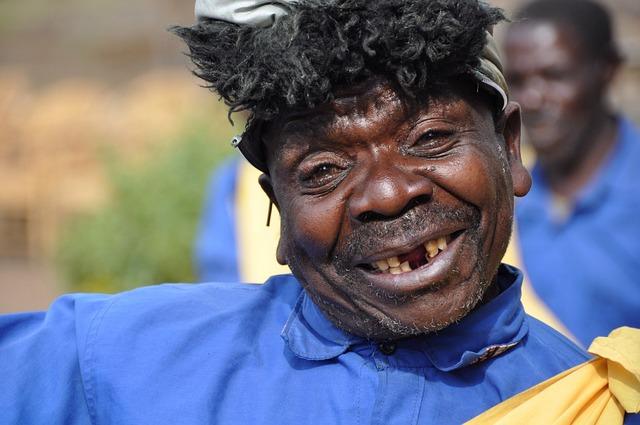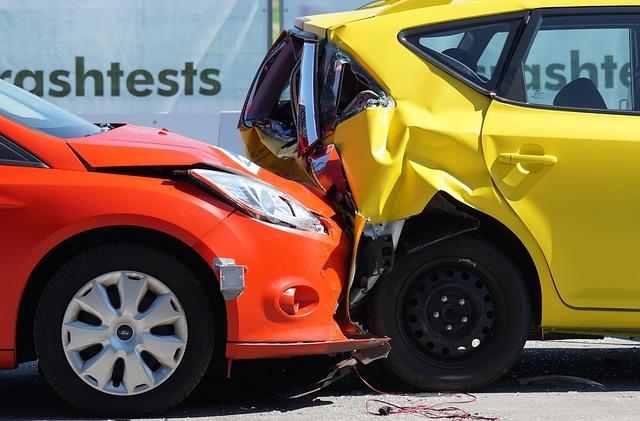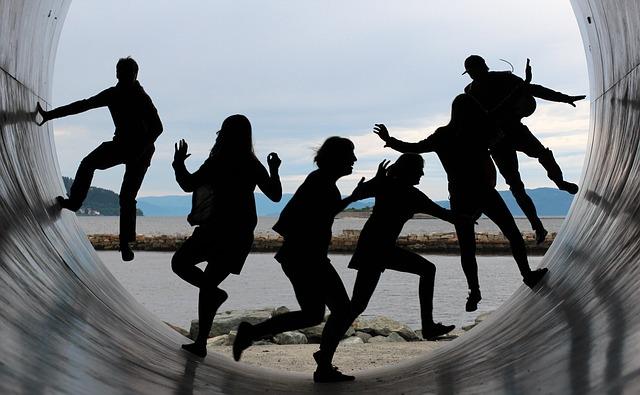In a recent interview wiht Le Monde, Olivier Nduhungirehe, Rwanda‚Äôs Minister of Foreign Affairs, firmly asserted that his country maintains no military presence on Congolese territory, amidst rising tensions and accusations from the democratic Republic of the Congo (DRC). As regional security concerns escalate, the Rwandan government has found itself at the center of an ongoing diplomatic crisis with its neighbor. Nduhungirehe’s statements come as both nations grapple with a complex history marked by conflict and collaboration, raising questions about the implications for peace and stability in East Africa.In this article, we delve into Nduhungirehe’s remarks, analyze the geopolitical ramifications, and explore the broader context of Rwandan-Congolese relations.
Olivier Nduhungirehe’s Stance on Rwandan Military Presence in Congo
In a recent interview with *Le Monde*, Olivier Nduhungirehe firmly stated that rwanda does not have any military presence or troops on Congolese soil, emphasizing a commitment to regional stability.He articulated that Rwanda aims to foster diplomatic relations with the Democratic Republic of the Congo (DRC) and that any accusations of military interference are unfounded. Nduhungirehe pointed out that such claims often stem from misunderstandings or misinformation regarding Rwanda’s security operations that occur close to,but not within,Congolese territory.
Nduhungirehe also stressed Rwanda’s dedication to supporting peace efforts in the DRC by participating in various diplomatic initiatives. He outlined the following key points regarding Rwanda’s involvement in the region:
- Promoting dialog: Engaging in meaningful discussions with Congolese authorities to resolve outstanding issues.
- Supporting humanitarian efforts: Collaborating with international organizations to address the needs of displaced populations.
- Combating armed groups: Working alongside regional partners to eliminate local militia threats.
This steadfast stance on military non-involvement is part of a broader strategy to enhance Rwanda’s image and cooperation in Central africa, as the nation’s leadership seeks to navigate the complex geopolitics of the region.

Historical Context of Rwanda-Congo Relations
the historical relations between Rwanda and the Democratic Republic of the Congo (DRC) have been marked by a complex interplay of ethnic tensions, political instability, and socio-economic challenges.At the core of this dynamic are the remnants of the Rwandan Genocide in 1994, which saw a mass exodus of Hutu refugees, including perpetrators of the genocide, into eastern Congo. This influx led to rising tensions between local communities and Rwandan refugees, creating a volatile environment. The DRC has been further destabilized by armed groups, many of which have roots in the genocide, complicating an already strained relationship.
In recent years, key issues contributing to the ongoing friction include:
- Resource Exploitation: Both nations have struggled with the exploitation of mineral resources, leading to conflicts over control and revenues.
- Militia Presence: Various militia groups operate in the eastern DRC, often with perceived Rwandan links, provoking accusations from both sides.
- Border Security: The porous border has facilitated both legal and illegal crossings, compounding security concerns and fueling mutual distrust.
efforts to manage these relationships have been complicated by external influences and regional geopolitics, resulting in cycles of accusation and denial. Rwanda’s assertion of having no soldiers on Congolese soil is part of a broader narrative aimed at reaffirming its sovereignty while addressing accusations that stem from prolonged historical grievances.

Analyzing Recent Tensions Between Rwanda and Congo
In recent weeks, the relationship between Rwanda and the democratic Republic of the Congo (DRC) has soured, marked by increasing tensions and allegations of military incursions. Rwandan Foreign Minister Olivier Nduhungirehe has decisively claimed, ‚ÄúWe have no soldiers on Congolese soil,‚ÄĚ refuting accusations from DRC officials that Rwandan forces have crossed the border. This assertion comes amid a backdrop of escalating skirmishes in the eastern DRC,where armed groups have gained notoriety,and rwanda has been accused of having connections to some factions. These allegations highlight historical grievances and the complex interplay of local and regional politics that continue to plague the Great Lakes region.
Several key factors contribute to the current crisis between the two nations:
- Historical Context: The violent legacy of the Rwandan Genocide in 1994 and its aftermath has created lasting tensions.
- Resource Conflicts: The DRC is rich in minerals such as coltan and gold,often a source of conflict and foreign interest.
- Armed Groups: The presence of various militias complicates security dynamics and raises suspicions between governments.
To better understand the strained relations, the table below summarizes some of the key incidents that have escalated these tensions:
| Date | Incident | Impact |
|---|---|---|
| October 2022 | Reports of Rwandan troops in North kivu | Heightened military alert in DRC |
| March 2023 | Diplomatic exchanges at the African Union summit | Calls for mediation and dialogue |
| August 2023 | Cross-border clashes in Rutshuru | Loss of civilian lives and displacement |

Implications of Nduhungirehe’s Claims for Regional Stability
The recent assertions made by Olivier Nduhungirehe regarding the non-presence of Rwandan troops in the Democratic Republic of the Congo carry significant implications for regional stability. By categorically denying military involvement, the Rwandan government aims to mitigate rising tensions and avoid exacerbating an already precarious security environment in the Great Lakes region. This strategic positioning could possibly influence diplomatic relations between Rwanda and its neighbors, notably the DRC, where historical grievances regarding military incursions remain unresolved.
Moreover, this declaration might affect the regional approach to conflict resolution and peacebuilding efforts. Key implications include:
- Increased Diplomatic Engagement: Maintaining dialogue could be crucial in preventing misunderstandings that may lead to conflict.
- International Scrutiny: Enhanced monitoring by international bodies may emphasize accountability for both Rwandan and Congolese actions.
- Regional Alliances: Shifts in alliances may occur, prompting other nations to reevaluate their positions regarding military interventions.
As the situation evolves, regional actors must navigate these claims carefully, balancing national interests with the collective need for peace and stability. Understanding the implications of such statements is essential for informed discussions surrounding the future of regional security dynamics.

Recommendations for Diplomatic Engagement in central Africa
Considering recent statements by rwandan Foreign Minister Olivier nduhungirehe, a multifaceted approach to diplomatic engagement in Central Africa is essential. The region has long been plagued by conflicts that have complicated relations among neighboring nations. Diplomats should prioritize establishing clear communication channels to reduce misunderstandings and build trust between countries. Key strategies should include:
- Facilitating Dialogue: Organizing regular dialogues involving key stakeholders, including government representatives, civil society, and local leaders, to address grievances and foster cooperative ties.
- Enhancing Regional Cooperation: strengthening existing regional organizations, such as the African Union and the Economic Community of Central African states, to better handle cross-border issues and joint security initiatives.
- Conflict Prevention Programs: Investing in early warning systems and conflict prevention programs that engage communities in dialogue on shared interests and concerns.
Additionally, addressing socio-economic factors that contribute to instability is crucial for lasting peace. This can be achieved through holistic initiatives that focus on development and human security. A collaborative framework involving international partners can definitely help mobilize resources for the region.vital aspects to consider include:
- Promoting Economic Development: Encouraging investment in local economies to reduce poverty and promote job creation, thereby mitigating causes of unrest.
- Strengthening Governance: Supporting transparent and accountable governance structures to build public trust and discourage corruption.
- Empowering Communities: Engaging local communities in decision-making processes to ensure their needs are addressed and they feel a sense of ownership in peace-building efforts.

The Role of International Community in Mediating Conflicts
The complexities of international conflict mediation frequently enough require a multifaceted approach that includes diplomatic negotiations, peacekeeping efforts, and humanitarian assistance. The role of global entities such as the United Nations, african Union, and various nonprofit organizations is crucial in fostering dialogue between conflicting parties. These organizations can exert pressure through various means, such as:
- Sanctions: Imposing economic or political penalties on aggressors.
- Peacekeeping Missions: Deploying neutral forces to stabilize regions experiencing turmoil.
- Mediation facilitation: Providing a neutral ground for discussions aimed at conflict resolution.
In the context of the ongoing tensions in the eastern Democratic Republic of the Congo,the involvement of the international community has become more pertinent than ever. Regional powers and international diplomatic efforts are essential to help navigate accusations and counter-accusations between Rwanda and the DRC. Transparency and dialogue are key elements that can be promoted through international platforms where representatives can address grievances and work towards de-escalation. A table highlighting the current stakeholders involved could offer a clearer overview:
| Stakeholder | Role |
|---|---|
| United Nations | Facilitates peacekeeping and mediations |
| African Union | Encourages regional cooperation and dialogue |
| Nonprofit Organizations | Provide humanitarian aid and build peace initiatives |
Wrapping Up
Olivier Nduhungirehe’s reaffirmation of Rwanda’s stance regarding its military presence in Congo underscores the complexities of regional relations in East Africa. His statements highlight ongoing tensions amidst accusations of interference and conflict, particularly as both nations grapple with issues of security and sovereignty. As the international community watches closely,Nduhungirehe’s declarations may play a crucial role in shaping diplomatic discourse moving forward. The situation remains fluid, and continued dialogue will be essential in fostering stability and cooperation in the region. For now, Rwanda maintains its position, emphasizing diplomacy over military engagement, but the underlying challenges persist, necessitating vigilance and commitment from all parties involved.







